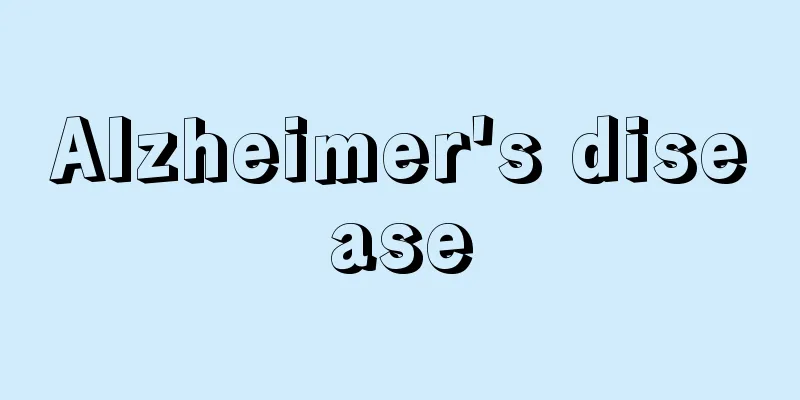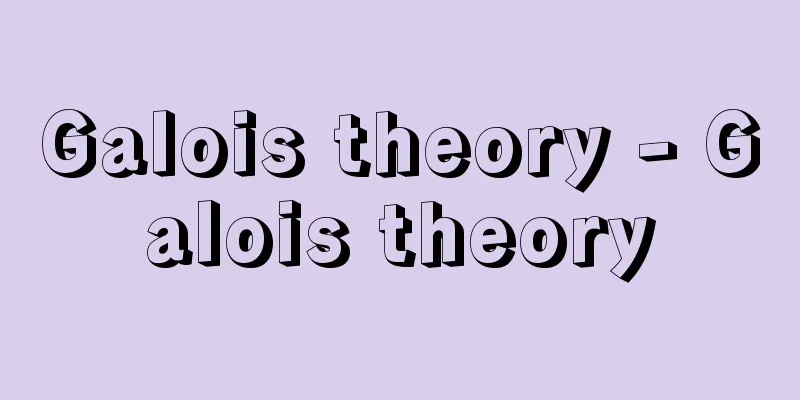Alzheimer's disease

|
What kind of disease is it? Main symptoms and progression A typical disease underlying dementia seen in the elderly is Alzheimer's disease. It is a progressive disease that begins without warning and gradually worsens, albeit slowly. In the early stages, symptoms include forgetfulness, memory loss such as getting the day of the week or the date wrong, and disorientation, where the patient cannot remember places, people, or times. As the symptoms gradually progress, forgetfulness becomes more severe, intellectual functions such as thinking and judgment decline, and disorientation worsens over time. Eventually, the patient begins to have delusions and begins to exhibit abnormal speech and behavior that seems to wander between dreams and reality. The patient himself or herself becomes confused and begins to exhibit abnormal behavior such as hallucinations, persecution complexes, extreme mood swings, and wandering. As the symptoms progress further, the patient will lose the ability to speak, lose motor functions and be unable to perform various movements, making it difficult for them to work or lead an independent daily life, and eventually become bedridden. Treatment involves addressing the symptoms caused by the decline in intellectual function (core symptoms such as impaired memory, language, judgment, and thinking ability) as well as the various emotional disturbances and abnormal behaviors that accompany it (peripheral symptoms such as depression, delusions, excitement, anxiety, hallucinations, wandering, etc.). ● Causes of the disease and how symptoms develop Alzheimer's disease was named after the German neurologist Alzheimer in 1907. Alzheimer discovered a characteristic change in the cerebrum of a woman whose symptoms, such as memory loss, had gradually progressed, and who had finally become bedridden and died. The woman's cerebrum had lost many nerve cells, and amyloid, a blemish-like abnormal protein (senile plaques), had been deposited in the cerebral cortex, and the entire cerebrum had atrophied. These cerebral changes are known today as a common feature seen in the cerebrums of Alzheimer's patients. It is predicted that amyloid may be deeply involved in the onset of Alzheimer's disease, but even now it is not clear why and how it occurs. ●Characteristics of the disease In Japan, Alzheimer's disease is the most common type of dementia, and its incidence is still on the rise. It tends to progress quickly when it occurs under the age of 65. There are few people who develop the disease early in their 40s and 50s, and most people develop the disease after the age of 60 or 70, and the disease becomes more likely with age. It is a disease that occurs more frequently in women than men. EBM checks on common treatments and care [Treatment and care] Accurately distinguish dementia from other diseases that cause symptoms [Rating] ☆☆☆☆☆ [Evaluation Points] There are highly reliable clinical research reports that show it is necessary to accurately distinguish whether the symptoms of dementia are caused by other diseases. Even among diseases other than Alzheimer's that can cause the symptoms of dementia, it is particularly important to distinguish whether the disease is treatable. (1) [Treatment and care] Check the medications you are currently taking [Rating] ☆☆☆☆ [Evaluation Points] Reliable clinical studies have reported that side effects of medications can cause symptoms similar to those of dementia. Among oral medications, caution is required with psychotropic drugs, anticholinergic drugs, and sedatives. (1) [Treatment and care] If the decline in intellectual function is mild to moderate, medication is used. [Rating] ☆☆☆☆☆ [Evaluation Points] There are highly reliable clinical studies that show that the drug is effective when the decline in intellectual function is mild to moderate (relatively not serious). There are also some clinical research reports that show that the drug is effective even in cases of moderate to severe decline, but the long-term effects are a topic for future research. (2)-(6) [Treatment and care] Emotional symptoms and abnormal actions and behaviors are controlled with medication as necessary. [Rating] ☆☆☆ [Evaluation Points] Behavioral and psychological symptoms of dementia (BPSD) include emotional confusion, agitation, hallucinations, depressive tendencies, and aggression towards those around you. These symptoms are treated with medication, taking into consideration the lifestyle and background of the individual (or caregiver). However, the efficacy of these medications must be regularly reviewed before use, as side effects such as Parkinson's symptoms, cognitive decline, and increased cardiovascular disorders, as well as increased mortality, have been reported. (7)(8) [Treatment and care] When new symptoms or abnormal actions or behaviors appear, the first step is to identify the cause and eliminate anything that can be eliminated. (1) [Rating] ☆☆ [Evaluation points] When new abnormal behavior is observed, it is necessary to pay constant attention to infections (urinary tract infections, pneumonia, etc.) and side effects of medications (anticholinergic drugs, etc.). In particular, be careful if there is a sudden decline in memory or thinking ability, or if the child is unable to speak or act coherently. [Treatment and care] Pay attention to secondary injuries and illnesses that occur due to the decline in intellectual function. [Evaluation] ☆☆☆☆ [Evaluation Points] Clinical studies have shown that people with impaired intellectual function due to Alzheimer's disease are twice as likely to suffer hip fractures than those without the condition. Many patients are unaware that their intellectual function is declining. Those around them, including caregivers, need to be careful of falls caused by wandering, dehydration caused by sweating in the summer, and injuries caused by delusions or excitement. (1)(9) Checking commonly used drugs with EBM Medicine used for mild to moderate decline in intellectual function [Drug name] Aricept (donepezil hydrochloride) (2) [Rating] ☆☆☆☆☆ [Drug name] Reminyl (Galanthamine hydrobromide) (3) [Rating] ☆☆☆☆☆ [Drug name] Rivastigmine (4) [Rating] ☆☆☆☆☆ [Drug name] Memantine (memantine hydrochloride) (5)(6) [Rating] ☆☆☆☆☆ [Evaluation points] There is highly reliable clinical research that shows that it is effective when the decline in intellectual functioning is mild to moderate. A drug that suppresses emotional symptoms and abnormal actions and behaviors. [Medicinal use] A drug that suppresses hallucinations, delusions, excitement, etc. (atypical antipsychotics) [Drug name] Risperdal (risperidone) (7)(8) [Rating] ☆☆☆☆☆ [Drug name] Zyprexa (Olanzapine) (7)(8) [Rating] ☆☆☆☆☆ [Drug name] Abilify (aripiprazole) (7)(8) [Rating] ☆☆☆☆ [Drug name] Seroquel (quetiapine fumarate) (7)(8) [Rating] ☆☆☆☆ [Evaluation points] There are highly reliable clinical studies that show that these drugs suppress symptoms such as hallucinations, delusions, and agitation. However, their efficacy must be regularly examined before use, as side effects such as Parkinson's symptoms, cognitive decline, and increased cardiovascular disorders, as well as increased mortality, have been reported. [Medicinal use] Antiepileptic drug [Drug name] Tegretol (carbamazepine) (10) [Rating] ☆☆☆ [Evaluation points] There are relatively reliable clinical studies that show that the drug suppresses symptoms such as hallucinations, delusions, and excitement, and has few side effects. [Medicinal use] Glutamate NMDA receptor antagonist [Drug name] Memantine (memantine hydrochloride) (11) [Rating] ☆☆☆☆ [Evaluation points] There is reliable clinical research showing that it not only suppresses symptoms such as hallucinations, delusions, and agitation, but also prevents their onset. [Medicinal use] Drug to suppress depression and loss of motivation [Drug name] Luvox/Depromel (fluvoxamine maleate) [Rating] ☆☆ [Evaluation points] Expert opinion supports the effectiveness of this drug in treating depressive symptoms in patients with dementia due to Alzheimer's disease. [Drug name] Paxil (paroxetine hydrochloride hydrate) (12) [Rating] ☆☆☆ [Evaluation points] Clinical studies have shown that it is effective in suppressing depressive symptoms. [Drug name] Toldomin (Milnacipran hydrochloride) (13) [Rating] ☆☆☆ [Evaluation points] There are clinical studies showing the effectiveness of this drug on depressive symptoms in patients with dementia due to Alzheimer's disease. [Medicinal use] Drug to improve insomnia [Drug name] Desyrel/Reslin (trazodone hydrochloride) (14) [Rating] ☆☆☆ [Evaluation points] There are clinical studies showing the effectiveness of this treatment for patients with dementia caused by Alzheimer's disease. [Drug name] Lendormin (brotizolam) [Rating] ☆☆ [Evaluation points] The effectiveness for patients with dementia due to Alzheimer's disease is supported only by expert opinion. Overall, the most reliable treatment currently available <br /> Determining the cause of dementia symptoms If there are symptoms of dementia that suggest Alzheimer's disease, the most important thing to do is to determine whether they are secondary symptoms caused by medications the patient is taking, depression, or metabolic and endocrine disorders. In order to accurately diagnose Alzheimer's disease, it is necessary to confirm changes in the cerebrum, but since this is impossible, it is necessary to closely observe the person's background, including whether they have other diseases, what medications they are taking for those diseases, and changes in family relationships and social roles. If it is a secondary symptom, there is a high possibility that the symptoms of dementia can be completely cured by adjusting the medication they are taking and treating the underlying disease. For patients with mild to moderate symptoms (impairments in memory, language, behavior, judgment, thinking, etc.) whose intellectual function is not so severely impaired, Aricept (donepezil hydrochloride) is considered for use. However, for patients with hypersensitivity to the drug itself, disorders of the cardiac electrical conduction system, digestive ulcers, bronchial asthma, chronic obstructive pulmonary disease, Parkinson's disease, etc., careful consideration is required before deciding whether to use it. Abnormal behavior and emotional changes should be suppressed by removing the cause and, if necessary, using medication. Behavioral and psychological symptoms of dementia (BPSD) include abnormal behavior and emotional changes such as depression, delusions, agitation, anxiety, hallucinations, and wandering. These symptoms may be secondary to an infection or may be caused by changes in the medication being taken, so it is necessary to check for such factors. If no such factors are found, or if the symptoms do not subside even after removing the factors, the most effective medication for each condition will be taken. However, the efficacy of these medications must be regularly examined before use, as side effects and increased mortality have been reported. Beware of secondary injuries and illnesses As the symptoms progress and intellectual function declines, the child will no longer be able to pay attention to their surroundings or avoid danger. They will become easily excited and confused, and may suddenly run outside and fall, or walk around in the hot sun without drinking enough water, leading to dehydration and other secondary injuries and illnesses. As this continues for a long time, it will be a heavy burden on those around the child, but it is necessary to take care to ensure that the child can continue to live as safely and calmly as possible. (1) Japanese Society of Neurology. Dementia Disease Treatment Guidelines 2010. Compact Edition 2012. Igaku-Shoin. 2012. Source: "EBM: A book that explains correct treatment" Information about the book "EBM: A book that explains correct treatment" |
|
どんな病気でしょうか? ●おもな症状と経過 老年期にみられる認知症の背景にある病気として代表的なものがアルツハイマー病です。進行性の病気で、いつとはなしに始まり、ゆっくりとではありますが、症状は次第に悪化していきます。 初期はちょっとした物忘れや、曜日・日付の間違いなど記憶力が低下したり、場所や人、時間を覚えていられなくなる見当識障害(けんとうしきしょうがい)が現れたりします。症状は徐々に進行していき、物忘れはいっそうひどくなり、思考力や判断力など知的な働きも低下し、見当識障害も経過とともにさらに悪化していき、やがて、妄想(もうそう)をもち始めたり、夢と現実の間をさまようような異常な言動が現れ始めたりします。患者さん本人も混乱し、幻覚(げんかく)や被害妄想(ひがいもうそう)、感情の起伏が激しくなる、徘徊(はいかい)といった異常な行動がみられるようになります。 さらに症状が進むと、言葉もでなくなり、運動機能が損なわれてさまざまな動作ができなくなるなど、仕事はもちろん自立した日常生活をおくることが困難になり、ついには寝たきりの状態になってしまいます。 治療としては、知的な働きの低下による症状(記憶、言語力、判断力、思考力の障害などの中核症状)への対応、それに伴っておこってくるさまざまな感情的な混乱や、異常な行動(抑うつ、妄想、興奮、不安、幻覚、徘徊などの周辺症状)などへの対応を検討することになります。 ●病気の原因や症状がおこってくるしくみ アルツハイマー病は、1907年にドイツの神経学者であるアルツハイマーの名にちなんで名づけられました。アルツハイマーは、徐々に記憶力の低下などの症状が進み、ついに寝たきりになって死亡した女性の大脳に、ある特徴的な変化を発見しました。その女性の大脳は、多くの神経細胞が脱落し、大脳皮質にアミロイドというシミ状の異常たんぱく(老人斑)が沈着し、大脳全体は萎縮(いしゅく)していました。この大脳の変化は、アルツハイマーの患者さんの大脳に共通してみられる特徴として今日知られています。アミロイドがアルツハイマー病の発症に深くかかわっているのではないかとの予測はありますが、現在でもなぜ、どのようにしておこってくるのかまだわかっていません。 ●病気の特徴 わが国では、アルツハイマー病は、認知症のなかではもっとも多い病気で、いまなお増加傾向を示しています。65歳未満で発症する場合は進行が早い傾向があります。40~50歳代の早期でおこる人は少なく、多くが60~70歳以降で発症し、加齢とともにかかりやすくなります。男性よりも女性でおこる割合の高い病気です。 よく行われている治療とケアをEBMでチェック [治療とケア]認知症の症状が現れるほかの病気としっかり判別する [評価]☆☆☆☆☆ [評価のポイント] 認知症の症状が、ほかの病気を原因としておこっているものかどうかを正確に判別する必要があるという非常に信頼性の高い臨床研究報告があります。アルツハイマー病以外で認知症の症状が引きおこされる病気のうちでも、とくに治療が可能である病気であるかどうかを判別することが大切です。(1) [治療とケア]現在服用中の薬を点検する [評価]☆☆☆☆ [評価のポイント] 薬の副作用によって、認知症に似た症状が現れるということが信頼性の高い臨床研究によって報告されています。内服薬のうち、向精神薬・抗コリン薬・鎮静薬などに注意が必要です。(1) [治療とケア]知的な機能の低下が軽度から中等度であれば薬を用いる [評価]☆☆☆☆☆ [評価のポイント] 知的な機能の低下が軽度から中等度(比較的深刻でない場合)までであれば、薬が有効であるという非常に信頼性の高い臨床研究があります。中等度以上の場合でも効果があるといういくつかの臨床研究報告がありますが、長期間の効果に関しては今後の研究の課題でしょう。(2)~(6) [治療とケア]感情面に現れる症状や異常な行為・行動に対しては、必要に応じて薬で抑える [評価]☆☆☆ [評価のポイント] 認知症の行動・心理症状(behavioral and psychological symptoms of dementia: BPSD)として、感情的に混乱する、興奮する、幻覚やうつ的な傾向を示す、周囲に攻撃性を示すといった症状がでます。それらに対しては本人(または介護者)の生活や背景をよく考慮し、薬を用いて治療をします。しかし、その効能は、パーキンソン症状・認知機能低下・心血管性障害増加などの副作用や死亡率増加なども報告されているため、定期的に吟味して利用する必要があります。(7)(8) [治療とケア]新たに現れる症状や異常な行為や行動に対しては、まず原因を探り、取り除くことができるものは取り除く(1) [評価]☆☆ [評価のポイント] 新たに異常な行動などが認められたときは、常に感染症(尿路感染症、肺炎など)や薬の副作用(抗コリン薬など)に注意を払う必要があります。とくに、急に記憶力や思考力が低下したり、まとまった話や行動ができなくなったりする場合は気をつけましょう。 [治療とケア]知的な機能が低下することによっておこる二次的なけがや病気に注意する [評価]☆☆☆☆ [評価のポイント] アルツハイマー病により知的な機能が低下した人はそうではない人に比べて股関節(こかんせつ)の骨折が約2倍であるという臨床研究があります。患者さんの多くは自分の知的な機能が低下していることに気づいていません。介護している人を含めた周囲の人々は、徘徊による転倒、夏季であれば発汗による脱水、妄想や興奮によるけがなどに注意する必要があります。(1)(9) よく使われている薬をEBMでチェック 知的な機能の低下が軽度から中等度の場合に用いられる薬 [薬名]アリセプト(ドネペジル塩酸塩)(2) [評価]☆☆☆☆☆ [薬名]レミニール(ガランタミン臭化水素酸塩)(3) [評価]☆☆☆☆☆ [薬名]リバスタッチ(リバスチグミン)(4) [評価]☆☆☆☆☆ [薬名]メマリー(メマンチン塩酸塩)(5)(6) [評価]☆☆☆☆☆ [評価のポイント] 知的な機能の低下が、軽度から中等度までであれば有効であるという非常に信頼性の高い臨床研究があります。 感情面に現れる症状や異常な行為・行動を抑える薬 [薬用途]幻覚、妄想、興奮などを抑える薬(非定型抗精神病薬) [薬名]リスパダール(リスペリドン)(7)(8) [評価]☆☆☆☆☆ [薬名]ジプレキサ(オランザピン)(7)(8) [評価]☆☆☆☆☆ [薬名]エビリファイ(アリピプラゾール)(7)(8) [評価]☆☆☆☆ [薬名]セロクエル(クエチアピンフマル酸塩)(7)(8) [評価]☆☆☆☆ [評価のポイント] これらの薬が、幻覚、妄想、興奮などの症状を抑えるという非常に信頼性の高い臨床研究があります。しかし、その効能は、パーキンソン症状・認知機能低下・心血管性障害増加などの副作用や死亡率増加なども報告されているため、定期的に吟味して利用する必要があります。 [薬用途]抗てんかん薬 [薬名]テグレトール(カルバマゼピン)(10) [評価]☆☆☆ [評価のポイント] 幻覚、妄想、興奮などの症状を抑え、副作用が少ないという比較的信頼性の高い臨床研究があります。 [薬用途]グルタミン酸NMDA受容体拮抗薬 [薬名]メマリー(メマンチン塩酸塩)(11) [評価]☆☆☆☆ [評価のポイント] 幻覚、妄想、興奮などの症状を抑えるだけでなく、それらの発症を予防することを示す信頼性の高い臨床研究があります。 [薬用途]抑うつ、意欲低下を抑える薬 [薬名]ルボックス/デプロメール(フルボキサミンマレイン酸塩) [評価]☆☆ [評価のポイント] アルツハイマー病による認知症の患者さんの抑うつ症状についての効果は、専門家の意見で支持されています。 [薬名]パキシル(パロキセチン塩酸塩水和物)(12) [評価]☆☆☆ [評価のポイント] 抑うつ症状を抑える効果があるという臨床研究があります。 [薬名]トレドミン(ミルナシプラン塩酸塩)(13) [評価]☆☆☆ [評価のポイント] アルツハイマー病による認知症の患者さんの抑うつ症状についての効果を示す臨床研究があります。 [薬用途]不眠を改善する薬 [薬名]デジレル/レスリン(トラゾドン塩酸塩)(14) [評価]☆☆☆ [評価のポイント] アルツハイマー病による認知症の患者さんについての効果を示す臨床研究があります。 [薬名]レンドルミン(ブロチゾラム) [評価]☆☆ [評価のポイント] アルツハイマー病による認知症の患者さんについての効果は、専門家の意見によってのみ支持されています。 総合的に見て現在もっとも確かな治療法 認知症の症状の原因を見極める アルツハイマー病を疑わせる認知症の症状があった場合、もっとも重要なことは、まず服用している薬やうつ病、代謝内分泌性疾患などによって引きおこされた二次的な症状かどうかを見極めることです。 実際にアルツハイマー病と正確に診断するためには、大脳の変化を確かめなければなりませんが、それは不可能ですから、ほかの病気がないかどうか、それによってどんな薬を用いているか、家族関係や社会的な役割の変化まで、その人の背景をくわしく観察する必要があります。もし、二次的な症状であるなら、服用している薬を調整したり、基礎にある病気を治療したりすれば、認知症の症状が完全に治る可能性が高くなります。 軽度から中等度であれば薬を 知的な機能の低下がそれほど深刻でなく、軽度ないし中等度の症状(記憶、言語、行為、判断力、思考力などの障害)である患者さんでは、アリセプト(ドネペジル塩酸塩)の服用を検討します。しかし、本薬自体への過敏症、心臓の電気伝導系障害、消化性潰瘍(しょうかせいかいよう)、気管支喘息(きかんしぜんそく)・慢性閉塞性肺疾患(まんせいへいそくせいはいしっかん)、パーキンソン病などがある患者さんに対しては、慎重に検討し、用いるかどうかを判断します。 異常な行動や感情の変化は、原因を取り除き、必要に応じて薬で抑える 認知症の行動・心理症状(behavioral and psychological symptoms of dementia: BPSD)である、抑うつ、妄想、興奮、不安、幻覚、徘徊など、異常な行動や感情の変化などが現れます。それらの症状は、感染症による二次的な症状である場合や、服用している薬の変化によって引きおこされる場合もあるので、そうした要因がないか、確認する必要があります。そうした要因が見あたらない、また、要因を取り除いても症状がおさまらない場合は、それぞれもっとも有効とされる薬を服用することになります。しかし、その効能は、副作用や死亡率増加なども報告されているため、定期的に吟味して利用する必要があります。 二次的なけがや病気に注意する 症状が進行し、知的な機能が低下していくと、身のまわりのことに気を配ったり、危険なことを避けたりすることができなくなっていきます。興奮しやすくなり、混乱を示すことも多くなり、いきなり外に飛びだして転倒する、必要な水分を補給せずに炎天下を歩き回り脱水症状をおこすといった二次的なけがや病気をおこしかねません。長期にわたるために、周囲の人の負担も重くなりますが、できるだけ安全で、落ち着いた生活が継続できるような配慮が必要となります。 (1)日本神経学会. 認知症疾患治療ガイドライン2010. コンパクト版2012. 医学書院.2012. 出典 法研「EBM 正しい治療がわかる本」EBM 正しい治療がわかる本について 情報 |
<<: Altsuruni Family - Altsuruni
>>: Alzheimer's fibrillary tangles
Recommend
Bank of China Ltd.
A major commercial bank in China. It is abbreviat...
Viennese Classicism - Vienna Kotenha
A general term for classical composers who were ac...
Military expansion
〘Noun〙 Abbreviation of "Gunbikakucho (militar...
Altun [Mountains] - Altun
In Chinese characters, it is called Alkin Mountain...
Leather grape fern
... Himehanawarabera is sometimes called Hebinosh...
Squid cage fishing - Squid cage fishing
...These fishing methods are mainly applied to oc...
Hystera
... Representative malignant tumors include cervi...
Green seedlings - Seibyo
〘Noun〙① Green seedlings. Seimyou. ※Meintoku Annals...
Saros cycle
One of the cycles in which solar and lunar eclips...
The Uesugi Zenshu Rebellion
This was a rebellion that Uesugi Ujinori (dharma ...
spirit of wine
...The chemical formula is C 2 H 5 OH. It is also...
Yellow Hachijo
A striped or checkered silk fabric with a yellow ...
Meteorological equator
...The central latitude of the equatorial low pre...
Turnu Severin
A city on the Danube River in southwestern Romania...
Callitrichaceae
…The name Callitrichaceae (foam moss) comes from ...









